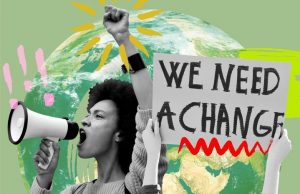Ianira Vieira (2025)
Reflections about the conference-format joint Master and PhD Course (2 ECTS) offered by the Department of Government (UiB) in collaboration with LawTransform 25-26 March 2025
A lot can be said about the two days in March dedicated to the Climate Politics and Autocratisation (GOV904) course, a joint doctoral and master’s programme coordinated by Lise Rakner and hosted by the Department of Government at the University of Bergen, in collaboration with LawTransform. That is perhaps because the journey began a month earlier with the master’s course GOV360-7 25V/Global: ‘Climate Politics: The Challenge of Autocratisation and the Climate Emergency’. The premise is based on empirical realities. Around the world, there is a dual trend of democratic backsliding and the reversal of climate policies. While these trends may appear distinct, the cases presented by speakers Danielle Rached (University of São Paulo), Håvard Haarstad (UiB), Siri Gloppen (UiB) and Yann Robiou du Pont (University of Utrecht) revealed them to be interconnected processes.
Siri Gloppen’s lecture, which was part of the Master’s course and was entitled ‘The green shift: The role of megaprojects and challenges to democracy’, examined how, despite being promoted for their supposed benefits and economic gains, megaprojects in the green transition often result in democratic deficits. The lecture explained how these projects concentrate power in corporations, generate ‘green colonialism’ and lead to land appropriation and human rights violations, including the criminalisation of dissidents.
During the joint PhD and Master’s course, Danielle Rached lectured on ‘Autocratisation processes and the environment: a Latin American perspective’. Through cases in Argentina and Brazil, Danielle addressed the rise of far-right leaders and their opposition to environmental protection. The lecture demonstrated how autocratisation processes lead to environmental degradation, the contestation of indigenous lands, the erosion of enforcement and the undermining of scientific legitimacy, despite the fact that Latin America is a pioneer of ‘green constitutionalism’.
Continuing the analysis of climate scepticism, Håvard Haarstad’s lecture, ‘Democracy and populist resistance to transition’, examined the politicisation of climate change and populist resistance to environmental policies. Haarstad argued that the repoliticisation of climate issues does not necessarily represent progress; it can also be characterised by nationalist and cultural discourses that challenge expert knowledge and create a divide between ‘experts and the people’. Using the example of Bergen, Haarstad demonstrated that objections to green policies frequently emerge from everyday concerns and urban-rural divides rather than rigid ideologies.
Ultimately, in his lecture titled ‘Are autocracies better at climate transformation?’, Yann Robiou du Pont questioned the effectiveness of various political systems in addressing climate change. He considered whether China is a ‘green leader’ or merely a ‘major player’, analysing its emissions in relation to its democratic performance and economic development. The lecture also covered the ambition of climate transformation and equity in the dynamics of the UNFCCC, as well as the growing role of climate litigation and corporate accountability, highlighting the complexity of comparing climate performance between autocracies and democracies.
Overall, this course featured valuable presentations by master’s and PhD students which provided a deep exploration of the links between climate policies and autocratisation processes. In the end, the consensus was that the two days of this joint PhD and master’s course had passed remarkably quickly, a testament that the topics covered were both substantial and relevant.
Photos: Rasmus Madsen Berg




